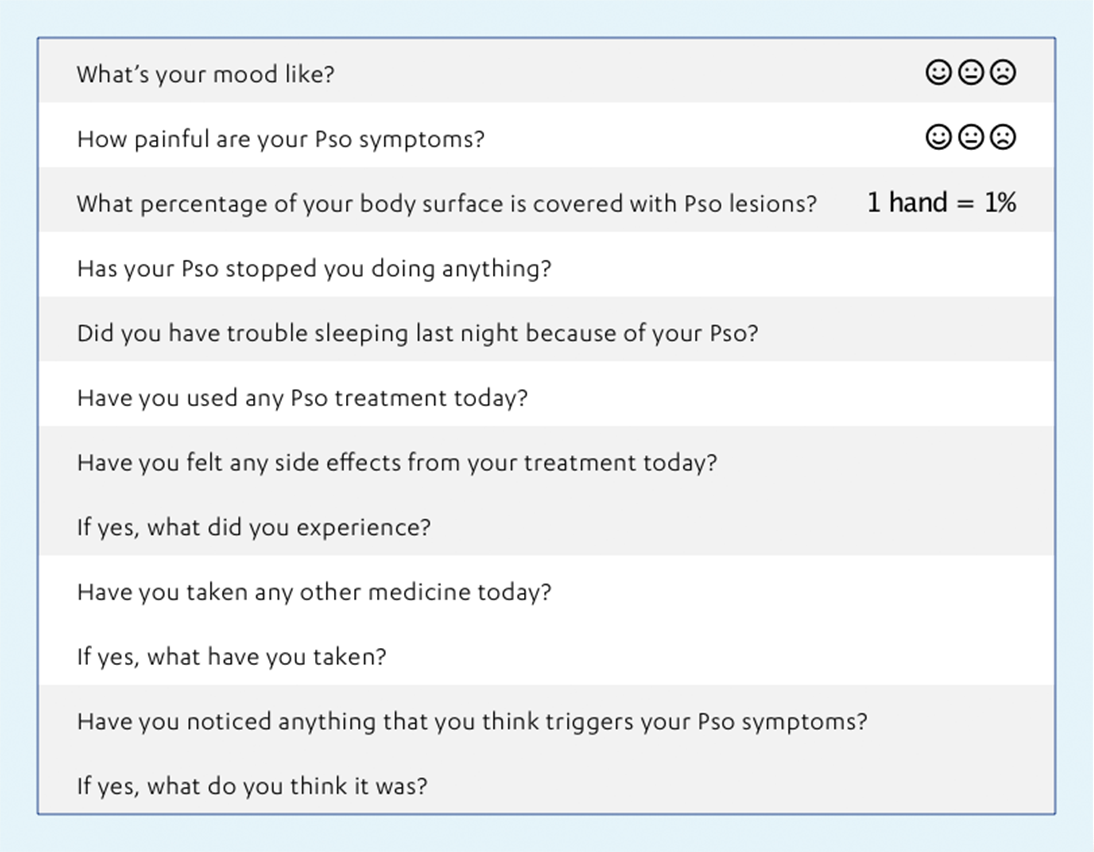Keep track of your progress
Keep track of your progress
It can be tricky to see how much things change over time if you haven’t kept a record. Think about how you were feeling two weeks ago. Do you remember what your mood was like, if there was anything you felt you couldn’t do because of your Pso (psoriasis) symptoms, how many lesions you had and where they were? Having this information and more might help your healthcare professional see how you’re doing, and whether anything, including your treatment, might need to change.
How should we measure success?
TOP TIP
“I know there are always options now no matter how bad it gets.”*

Things to think every day about that could help you keep track of your progress:

Having answers to questions like the ones above could be a valuable conversation.
Download/print the progress tracker
You may be interested in:

Work out how much your psoriasis might be affecting you.

Does psoriasis (Pso) always stay the same?

Make every moment of the consultation really count.
*Representative of patient experience
